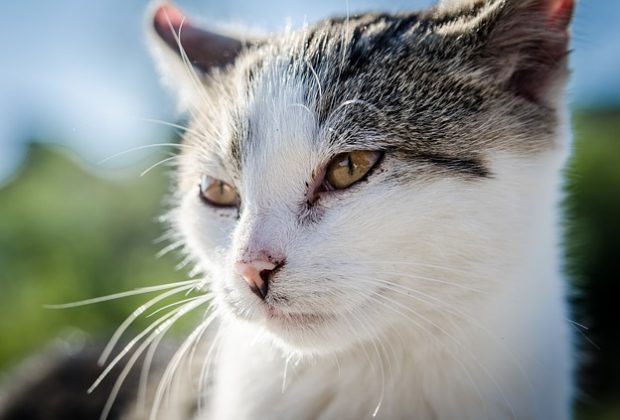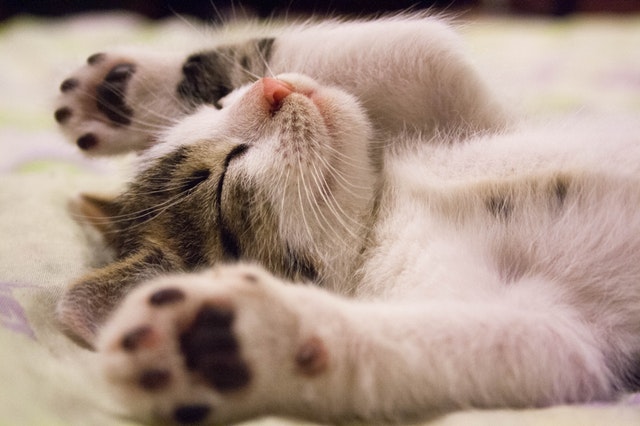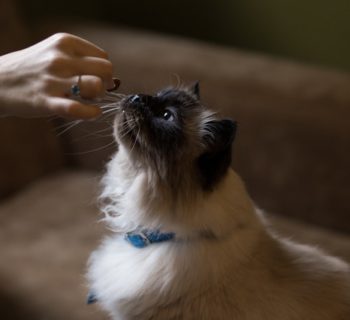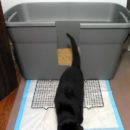What vaccinations should my kitten get? If you just brought your kitten home, you will probably wonder about this. Your new kitten needs all you can provide to ensure it grows healthy, strong, and happy. This includes getting the best nutrition possible, regular grooming, good shelter, and VACCINATION.
We’ll examine vaccinations in this article, why your kitten needs them, and which vaccines are required to prevent your kitten from falling sick and prevent the spread of disease to other pets and humans.
Table of Contents
Why Should I Vaccinate My Kitten?
At birth, your kitten’s immune system alone can do only do so much to protect it from diseases. Before birth, the mother’s own immune system had saved it. After birth, it continues to get some level of protection from its mother, thanks to the antibody-rich milk known as colostrum.
The colostrum, the anti-body rich milk, provides kittens with temporary immunity against diseases, even though the length of protection can vary from kitten to kitten.
However, on average, the protection provided by the colostrum fades as the kitten grows older, usually between eight and eighteen weeks.
At this point, your kitten may become vulnerable to diseases, with the colostrum doing little as a defense. To protect your kitten from certain diseases, vaccinations become needful at this stage.
How Does a Vaccine Work?
Generally, vaccines work by triggering an immune response to a particular disease in order to prevent future infection from that same disease if your kitten ever gets exposed to it.
Felines need specific important vaccines to provide them with immunity against harmful and easily spread diseases and infections. While there are general mandatory vaccines, also known as core vaccines, your kitten may require specific vaccines (non-core) that are considered vital in your geographical location.
Also, some non-core vaccines may be required depending on the kitten’s environment and its risk of getting exposed to certain diseases.
Usually, vaccines begin at about six weeks of age and are repeated every three weeks till they’re about 16 – 18 weeks old. While most vaccines will be given separately, some will be administered together in one injection, referred to as a combination vaccine. This will be determined by the vaccination schedule drawn by your vet at your kitten’s first vet visit.
Will My Cat’s Vaccine Be Painful?
Even though your kitten may feel a sting or pinch when injected, vaccine injections aren’t usually painful. Some kittens may not react to it at all, so your kitten will probably not react to it.
It is not recommended to give vaccines if your kitten has a fever or any illness at all. Doing so may render the vaccine ineffective or worsen your cat’s health.
If your cat is fit and well before a vaccine, the vaccine’s effectiveness should take between 5 -10 days to kick in. Even before the shot, your kitten may still have some maternal antibodies for a particular disease but there’s really no way to be certain. If your kitten still has some antibodies left from the colostrum, there is nothing to worry about; the vaccine will not affect him.
That said, you can only be certain of the vaccine’s true immunity on your cat when all boosters are completed or when your cat reaches 16-18 weeks of age. As a precaution, you should avoid exposing your cat to strays or unknown animals until they have finished their vaccines.
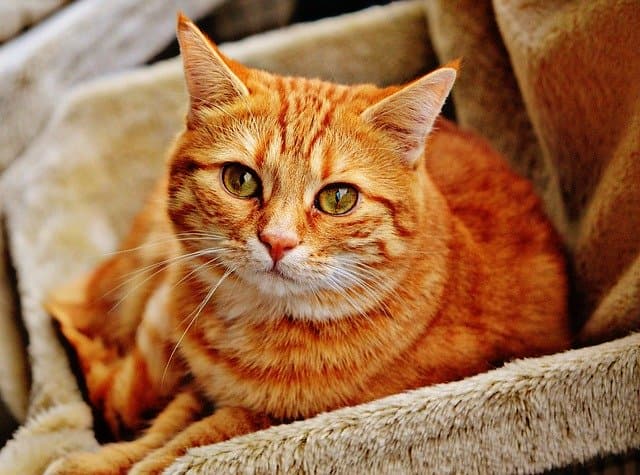
Types of Kitten Vaccines
Below is a table of some diseases, their vaccines (categorized into core and non-core vaccinations), symptoms and causes.
VACCINATABLE DISEASES | CORE OR NON-CORE | CAUSES OF THE DISEASE | SIGNS & SYMPTOMS |
|---|---|---|---|
Herpes | Core | Virus | •Corneal ulcers |
Calicivirus | Core | Virus | •Mouth ulcers |
Panleukopenia (a.k.a. “kitty distemper” or “feline parvo”) | Core | Virus | •Appetite loss |
Rabies | Core | Virus | •Change in meowing pattern |
Non-Core | Virus | •Fever | |
Non-Core | Virus | •Anemia | |
Chlamydia felis | Non-Core | Bacteria | •Eyes and/or nose discharge |
Bordetella bronchiseptica | Non-Core | Bacteria | •Weakness and drowsiness |
Beyond the First Year
After your cat completes the first series of vaccinations, you still have to keep it up to date on vaccinations even into adulthood. This helps to ensure that your feline stays fully protected from diseases, especially infectious ones.
Most vaccines will need to be boosted again after the one year mark. The frequency of the vaccination may also change based on the duration of the immunity provided by the vaccine.
A summary of some reasons you should vaccinate your cat
- Your cat was involved in a catfight with a stray
- You’re moving to a different region, state or country
- You’ll be getting or have gotten another cat
- You’ll be boarding your cat at the kennel, at the sitter’s or dropping it at a cat daycare with other cats
- Your cat is going outdoors for the first time or is being allowed to spend more time outdoors
Vaccination Risks
Vaccination risks, while relatively uncommon, still exist. If your cat has a reaction to a vaccine, it will probably be mild and will go away on its own without further complications.
Some vaccine risks include swelling at the site of the injection, lethargy, mild fever, and pain. In rare cases, severe allergic reactions such as facial swelling, hives, breathing difficulty may occur and could require a visit to the nearest vet.
Also, vaccinations typically trigger an immune response, and as such, there is a slight possibility of developing an auto-immune disorder. Like other vaccination reactions, this is extremely rare. But if it happens to your feline, note that it can be severe and challenging to treat. It could also trigger a number of illnesses, including neuromuscular issues, skin problems, and blood disorders.
Suppose you consider that the number of pets affected by vaccines is way less than the unaffected vaccinated ones. In that case, you’ll agree with pet experts and vets that the benefits are certainly greater than the risks with these vaccines.
That said, young felines need these vaccines at their vulnerable kitten stage and adults too. Though these days, more vets and pet experts are opting for protocols requiring less frequent vaccination.
Once vaccinations from these protocols are given annually, most adult vaccinations may be required only every three years.
Details the Vet May Need Before Scheduling Your Cat’s Vaccines
- Your kitten’s age (Check here for our guide on determining a kitten's age)
- Previously received vaccines, date, and vet
- Your kitten’s FeLV (feline leukemia) and FIV (feline immunodeficiency virus) status (this can be determined with a regular feline blood test)
- Your kitten’s first place of stay; was it a stray, did you get it from a breeder, a friend, pet store, or a neighbor?
- If known, the number of cats in your kitten’s litter
- Your kitten’s size and weight
- Your kitten’s mom: was she well vaccinated?
- Do you plan for your kitten to be an indoor cat or an outdoor cat?
- Do you have other felines in the home and if you do, what is their vaccination status?
- Will your kitten be traveling with you or will it be boarded when you’re away?
- Will your kitten be included in a breeding program or kitten shows?
- Your local pet laws and regulations
Vaccine Types: Core and Non-Core Vaccines
Vaccines for cats and other pets are usually categorized under core and non-core vaccines. We explain both types below.
Core Vaccines
Most infectious diseases can quickly infect other animals and humans when a feline is infected. The outcome of these diseases can be devastating, so it is highly essential to vaccinate cats against them, regardless of their history, living environment, and lifestyle.
Non-Core Vaccines
These vaccine types usually depend on conditions specific to your kitten, e.g., its living state, exposure to other pets, living area, and lifestyle.
Your vet might recommend some or one of the non-core vaccines if some risk factors apply to your pet. While all cats may not need the vaccinations, they are essential and highly beneficial to at-risk cats.
Lay bare the details during your vet visit, and he’ll decide if any non-core vaccine is needed besides the core ones.
About the Author
Kirsten Heggarty
Kirsten created The Pet Handbook with the aim of sharing her knowledge about pets, pet food, healthy habits, and more. All of her advice is based on years of her own experience with her pets, and feedback that she has received from grateful readers about her tips. If you want to know more please read the About Me page.

